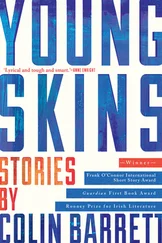The two of them stepped quietly in the wake of the surefooted mules, the mules followed the horse with the bell, the horse followed a silent man whom Dr. Sepulveda did not introduce. Up they went, and up and up, moving effortlessly through the lightly falling snow. They crossed a snowfield interrupted by columns of ice, and they passed a horse frozen head down in one of those columns with its hind legs stretched stiffly skyward. From behind the column, dressed in the hide of an animal, Jemmy Button appeared. Three condors dotted the sky between him and Aconcagua.
The horse represented her inheritance, Zaga decided when she woke. Frozen, useless; she had done the right thing in freeing it up. Dr. Sepulveda had told her a story of how Darwin had seen such a horse and described it in his journal, but she could no longer remember how the horse had come to its fate.
Six months later, when Nicholas’s company went under, Zaga was left with so little that she could no longer afford the maintenance fees for her lovely condominium. “I was investing the money for the children,” she told her siblings. “I wanted them to have more for college.” If they knew she was lying, they didn’t call her on it. By then they were treating her as carefully as if she were sick.
She rented her condominium to a pair of brokers she could hardly tell apart, and she moved into the first floor of a three-story row house within walking distance of two of her brothers and not far from the house where she’d grown up. Marianna, after her initial rage, found the apartment for Zaga; she also found Zaga a job as a receptionist for a pediatric dental practice.
The waiting room there was always full and Zaga learned that she was good with children — much better than she would have thought after her experiences with Rob and Alicia. The children called her by her first name and drew stars on her hands with felt-tipped pens. She hung the drawings they made for her on the wall above her desk.
At night, when the office emptied and the dentists drove off in their new cars toward the area she’d abandoned after nineteen years, she walked home through the crowded neighborhood. Her family began, slowly and tentatively, to invite her to Sunday dinners and birthday parties and confirmations and school plays. When they took her aside, one by one, they all asked the same questions.
“How did you lose Joel’s money?” they asked. “What could you have been thinking?”
She could not explain that it had nothing to do with thought. It was the buzz, the rush, the antic joy of flinging her old life to the winds. She was abashed by her final loss, adrift and upset — and yet there was also the fact that she had not felt so content in years. Every trace of the life Joel had given her was gone, and she had nothing left to live on but her wits. She knew that what her family really longed to know was why she couldn’t have given the money to them. I would have, she wanted to say. If I’d known what I was doing. But even their resentment could not shatter her sense of relief. Even her stepchildren couldn’t make her regret what she had done.
Rob and Alicia came to visit her four months after she’d moved into her new apartment. It took them that long to agree on a day when they could both find the time, and when they arrived they were hot and exasperated and two hours late.
“We got so lost,” Alicia said as she flounced in the door. “Unbelievable, these streets — how does anyone find their way around here?”
She was thirty-four, still flamboyant, now completely blond. She set down her purse and walked through Zaga’s rooms, which ran in a row from front to back: the kitchen just inside the door, then the living room, then the bedroom. The bathroom was off the kitchen and had no shower, only an old, deep tub with a rubber nozzle that Zaga used for rinsing her hair. Alicia stared at everything in the three small rooms — weighing, Zaga thought. Judging, as she always had — and said, “Do you really have to live like this?”
“Alicia,” Rob said, but Alicia would not be stopped. She wandered across the linoleum, from the old gas stove to the window propped open by a book, and when she looked at Zaga her puzzlement seemed genuine. “What happened to all the good furniture?” she said. “What happened to everything?”
Zaga explained that she’d sold much of it and left the rest in the condominium for her tenants, but she could tell that Alicia did not believe her.
“Are you living like this just to make us feel guilty?” Alicia said.
“ Alicia, ” Rob said again. But then he looked around glumly and added, “You ought to sue that bastard.”
Zaga refrained from reminding him that he had sent Nicholas her way, and that, after she’d given Nicholas the first check, Rob had called her and had seemed pleased and horrified in approximately equal parts. Now he said, “I wish you hadn’t trusted him so much.”
He had, Zaga knew, lost a fair amount with Nicholas himself. But in his eyes she read his conviction that she had lost everything. In his townhouse he hid his TV and VCR in a nineteenth-century French armoire that had passed to him through more generations of family than she could bear to remember. He was searching the room for some trace of his father and failing to find the smallest thing, and she couldn’t explain to him that the objects she’d shed were no more meaningful than the donations the British missionary society had sent to Tierra del Fuego with Jemmy Button and his companions. Still, occasionally, she thought about the equation Dr. Sepulveda had seemed to suggest between Jemmy’s life and her own.
Beaver hats and white tablecloths and soup tureens and pants; a complete set of dishes painted with flowers and little trays for tea. How FitzRoy’s crew had laughed when they’d opened those crates on Tierra del Fuego! And how strange it had been, Dr. Sepulveda said, when the boat’s crew returned to visit Jemmy the first time. The dishes were smashed, the vegetable garden trodden into the mud. The fancy clothes had been torn into strips that waved gaily from heads and wrists.
“I heard you’re working,” Alicia said.
“For some dentists,” Zaga replied. She offered nothing more. She had planned to bring them with her to a family barbecue, but after a few more minutes of awkward conversation they exchanged a glance and then made excuses and left. She changed her clothes and went to Marianna’s by herself.
“They got to my place late,” she explained to Marianna. “Then they had to leave early.”
Marianna was holding Timothy’s youngest daughter in her lap, watching the rest of the children spread mustard on sausages and potato salad on paper plates. “Why’d they bother coming at all?” she asked.
Zaga remembered how miserable she had been in Portillo, caught in the hot beam of Rob’s and Alicia’s eyes. What had she expected to find in that place? Ease and elegance, manners and wisdom, a past she could share with her husband. She had never considered how isolated she would be. But Joel had been out on the slopes with his children, and when he returned he alternated between describing their thrilling runs and pressing Zaga to come outside. She didn’t feel well enough, she’d said. Whenever she’d alluded to her pregnancy, Rob and Alicia had looked at the walls, the floor, the snow.
“It’s good that you’re pregnant,” Dr. Sepulveda had said. Was that the afternoon he took the picture, or another, earlier one when she asked about his wife and he said quietly that she was dead? In the lounge, when she’d been driven to ask him her last question and he’d responded with one of his own, she’d refused to answer him. She’d risen and said goodbye and left the hotel without seeing him again. But before that, he had said, “A baby with Joel’s money and your looks and character, born into Joel’s world — a child like that might do anything.”
Читать дальше
Конец ознакомительного отрывка
Купить книгу












